AADHAR BAHUUDESHIYA SANSTHA, Jalgaon (Maharashtra)
 Aadhar Sanstha was formed in the year 1997. Aadhar’s primary focus areas of work have been Women Empowerment, Health, Child Development, Education and Legal Support and Aid. They actively liaise and collaborate with the government to work with female sex workers, people living with HIV/AIDS, children of female sex workers, victims of violence and also intervene in conflicting family situations.
Aadhar Sanstha was formed in the year 1997. Aadhar’s primary focus areas of work have been Women Empowerment, Health, Child Development, Education and Legal Support and Aid. They actively liaise and collaborate with the government to work with female sex workers, people living with HIV/AIDS, children of female sex workers, victims of violence and also intervene in conflicting family situations.
They work with around 140 villages in 16 blocks in the district of Jalgaon, Maharashtra and touch the lives of around 500 female sex-workers. Aadhar’s mission is to empower women in sex work through collectivization and also to promote community empowerment through education, livelihood and health-care support.
Jwala Shakti Samuh (JSS), Jharkhand
JSS is a newly formed sex workers’ collective representing women from Ranchi, Gumla, Palamu, Dumka and Khunti in Jharkhand. The JSS works to address the concerns of street- as well as home-based sex workers in these areas.
Karnataka Sex Workers Union (KSWU)
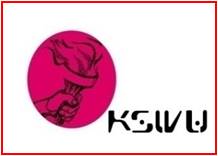 KSWU is a trade union of 2300 female, male and transgender sex workers in Karnataka established in 2006. Its members are from Bangalore Rural, Bangalore Urban, Ramnagar, Tumkur, Hassan, Belgaum and Chikaballapuar districts. KSWU is working to access human, civil and labour rights for sex workers and is also campaigning for the decriminalisation of sex work. The KSWU is affiliated to the New Trade Union Initiative (NTUI) a National federation of independent trade unions in India.
KSWU is a trade union of 2300 female, male and transgender sex workers in Karnataka established in 2006. Its members are from Bangalore Rural, Bangalore Urban, Ramnagar, Tumkur, Hassan, Belgaum and Chikaballapuar districts. KSWU is working to access human, civil and labour rights for sex workers and is also campaigning for the decriminalisation of sex work. The KSWU is affiliated to the New Trade Union Initiative (NTUI) a National federation of independent trade unions in India.
Kerala Network of Sex Workers (KNSW), Kerala
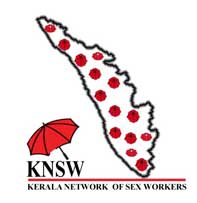 KNSW was formed in 2015, as an outcome of movement-building among several sex workers’ organisations in the state. It received extensive support from WINS, Tirupathi to strengthen its collectivisations process through 2016. At present KNSW has a presence in six districts: Thrissur, Kozhikode, Malappuram, Kottayam, Ernakulam and Pattanamthitta, with its Secretariat at Thrissur. KNSW develops community leadership to enable sex workers to re-emerge as leaders to take forward the process of movement building. KNSW aims to build a training resource team within the network, in order to train their peers in their respective districts.
KNSW was formed in 2015, as an outcome of movement-building among several sex workers’ organisations in the state. It received extensive support from WINS, Tirupathi to strengthen its collectivisations process through 2016. At present KNSW has a presence in six districts: Thrissur, Kozhikode, Malappuram, Kottayam, Ernakulam and Pattanamthitta, with its Secretariat at Thrissur. KNSW develops community leadership to enable sex workers to re-emerge as leaders to take forward the process of movement building. KNSW aims to build a training resource team within the network, in order to train their peers in their respective districts.
Mahila Jagrut Sevabhavi Sanstha, Parbhani (Maharashtra)
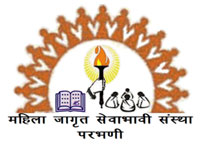 Mahila Jagrut Sevabhavi Sanstha, Parbhani (Maharashtra), formed in the year 2011, works with sex workers and other marginalized groups in Parbhani, Maharashtra. They primarily work on issues of social security, financial security, health, women empowerment andalso on social rights. MJSS works with around 2500 sex workers. The organization also works on collectivizing the women through the formation of Bachat Gats andprovides them with health-care support.
Mahila Jagrut Sevabhavi Sanstha, Parbhani (Maharashtra), formed in the year 2011, works with sex workers and other marginalized groups in Parbhani, Maharashtra. They primarily work on issues of social security, financial security, health, women empowerment andalso on social rights. MJSS works with around 2500 sex workers. The organization also works on collectivizing the women through the formation of Bachat Gats andprovides them with health-care support.
The Sanstha is active in situations of crisis, they also help the communities address issues through grievance redressal systems, andalso help them access various government benefits and schemes.
Me and My World, Andhra Pradesh
Me and My World is a network of organisations of female sex workers and people of diverse sexualities, working in Andhra Pradesh and Telangana. The thrust of the network is building the agency of female sex workers so that their collectives function in a democratic manner. Member organisations fight for the decriminalisation of sex work and are opposed to the conflation of sex work and trafficking. Me and My World is focused on countering violence faced in sex workers daily life and restores their basic civil and political rights. The network actively forges alliances with diverse social movements, in order to put up a unified struggle to build an inclusive and progressive society.
Mitra, Maharashtra
Mitra is a collective of children of sex workers in Nippani. SANGRAM runs the MITRA hostel and provides supplementary education classes to resident children. They also work with adult children of sex workers, building capacity to support VAMP. While the work with children of sex workers began around 2000, the MITRA collective formally emerged in 2009.
Muskan, Maharashtra
 Muskan is a collective of men who have sex with men and transgender sex workers. Muskan, which means ‘smile’, emerged in 2000.
The collective works towards the goal of removal of social inequality through community-led strategies. Outreach to community members who identify or dress as feminine, masculine or jogappa, by the members from MUSKAN who identify/dress the same has been effective in reaching more people and building a collective strength.
Muskan is a collective of men who have sex with men and transgender sex workers. Muskan, which means ‘smile’, emerged in 2000.
The collective works towards the goal of removal of social inequality through community-led strategies. Outreach to community members who identify or dress as feminine, masculine or jogappa, by the members from MUSKAN who identify/dress the same has been effective in reaching more people and building a collective strength.
Nirangal Federation, Tamil Nadu
Nirangal, registered in 2012, works on gender and sexuality rights and the welfare all marginalised communities like women, children and Dalits, with a long-term vision of a society where well-being, happiness, and justice for gender and sexuality minorities and sex workers is not an exception but the norm. This vision includes an India where non-heteronormative sexualities and sex work are not only decriminalised but are actively protected; where there is increased respect for and acceptance of genders and sexualities that go beyond binary gender and heterosexual norms; where queer women, men, transpersons, and sex workers can live without fear of persecution; where the modes of seeking redress, accessing help, and obtaining justice are readily available, easy and efficient.
Saheli Sangh, Pune, Maharashtra
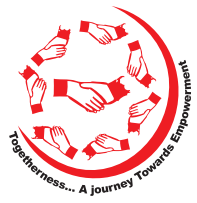 Saheli HIV/AIDS Karyakarta Sangh is a community-based organisation and sex workers’ collective established in 1998 in Pune. As the only sex workers’ collective in Pune, Saheli’s mission is to empower women in sex work through collectivisation and to provide health-care support and social services. It also aims to change societal attitudes towards individuals in sex work. Annually, Saheli reaches out to approximately 2000 brothel-based sex workers and around 200 street-based sex workers.
Saheli HIV/AIDS Karyakarta Sangh is a community-based organisation and sex workers’ collective established in 1998 in Pune. As the only sex workers’ collective in Pune, Saheli’s mission is to empower women in sex work through collectivisation and to provide health-care support and social services. It also aims to change societal attitudes towards individuals in sex work. Annually, Saheli reaches out to approximately 2000 brothel-based sex workers and around 200 street-based sex workers.
Stree Sanghatan, Chota Udaipur
Stree Sanghatan is a registered community based group comprising of female sex workers in Baroda and Chattaudepur. The Sanghatan works with 400 sex workers, home-based and working through lodges and until recently with street-based workers. The Sanghatan is active in situations of crisis, intervening in family discords and ensuring the education of children and providing support to access government benefits and property rights.
Uttara Karnataka Mahila Okkuta (UKMO), Karnataka
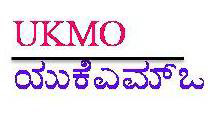 UKMO, formed in the year 2010 with its headquarters in Bangalore, works with women in sex work, other marginalised women and their children, promoting their psychological, social, political, economic and cultural rights. Organisations from Gadag, Haveri, Koppal, Raichur and Uttara Kannada are members of the Okkuta. The organisation supports its member organisations to work with the communities in the districts; conduct advocacy with other stakeholders such as government departments. NGOs and donors; and conscientises and empowers community members to address self stigma and discrimination.
UKMO, formed in the year 2010 with its headquarters in Bangalore, works with women in sex work, other marginalised women and their children, promoting their psychological, social, political, economic and cultural rights. Organisations from Gadag, Haveri, Koppal, Raichur and Uttara Kannada are members of the Okkuta. The organisation supports its member organisations to work with the communities in the districts; conduct advocacy with other stakeholders such as government departments. NGOs and donors; and conscientises and empowers community members to address self stigma and discrimination.
Vadamalar Federation, Tamil Nadu
Vadamalar Federation based in Madurai comprises CBOs of Theni, Thiruvanmalai, Nagercoil, Chemanvillai, Tirunelveli, Tenkasi, Pudukkottai, Madurai and Karungalakudi. The Federation actively advocates on issues pertaining to human rights, and laws that influence the life and livelihood of sex workers. The Federation has trained a cadre of counsellors who provide emotional support to sex workers, partners and family members. The Federation also promotes awareness about social protection schemes and protection for the girl children of sex workers through educational support and hostel facilities for the children.
Veshya Anyay Mukti Parishad (VAMP), Maharashtra
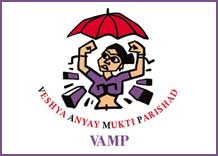 VAMP since its inception in 1996 has taken a rights-based approach to organising sex workers. Veshya, the Sanskrit word for ‘prostitutes’ was reclaimed to bring back dignity to the word and remove the stigma associated with prostitution. VAMP runs and manages peer intervention in five districts: Sangli, Satara, Kolhapur in Maharashtra and Bagalkot and Belgaum in Karnataka. And a Crisis Redressal Committees called ‘Tanta Mukthi’, which resolves issues within communities and does advocacy with other stakeholders. The VAMP Institute, formalised in 2010 runs formal exposure and training programmes for worker groups and activists in India and South Asia. The collective calls for the decriminalisation of sex work, so sex workers have access to the same laws and services as other citizens.
VAMP since its inception in 1996 has taken a rights-based approach to organising sex workers. Veshya, the Sanskrit word for ‘prostitutes’ was reclaimed to bring back dignity to the word and remove the stigma associated with prostitution. VAMP runs and manages peer intervention in five districts: Sangli, Satara, Kolhapur in Maharashtra and Bagalkot and Belgaum in Karnataka. And a Crisis Redressal Committees called ‘Tanta Mukthi’, which resolves issues within communities and does advocacy with other stakeholders. The VAMP Institute, formalised in 2010 runs formal exposure and training programmes for worker groups and activists in India and South Asia. The collective calls for the decriminalisation of sex work, so sex workers have access to the same laws and services as other citizens.
Kutch Mahila Vikas Sanstha (KMVS), Gujarat
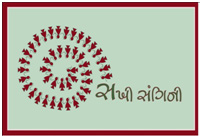 KMVS was set up in 1989 with the mandate of organising rural women of Kutch to facilitate their empowerment and foster their leadership – economic, political ,social and cultural – through conscious-raising , organisation and mobilisation into local collectives capable of independently addressing gender inequities in their region. KMVS works towards organising women from marginalised sections like sex workers and women in the unorganised economic sectors such as rag pickers.
KMVS was set up in 1989 with the mandate of organising rural women of Kutch to facilitate their empowerment and foster their leadership – economic, political ,social and cultural – through conscious-raising , organisation and mobilisation into local collectives capable of independently addressing gender inequities in their region. KMVS works towards organising women from marginalised sections like sex workers and women in the unorganised economic sectors such as rag pickers.
Sampada Grameen Mahila Sanstha (SANGRAM), Maharashtra
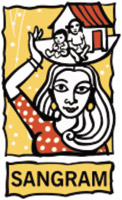 SANGRAM, established in 1992 in Sangli, Maharashtra, has grown into a series of collective empowerment groups for stigmatised communities (sex workers, MSM, and transgender individuals) in six districts of southern Maharashtra and northern Karnataka. SANGRAM is a women-led, rights-based group that seeks to change community norms and tackle gender inequities at the grassroots level such as gender-based violence, access to resources and the right to property and power. Core principles include involving community members in program design, implementation and leadership; creating a sense of community to facilitate collaboration; and eliminating the stigma and discrimination associated with sex work.
SANGRAM, established in 1992 in Sangli, Maharashtra, has grown into a series of collective empowerment groups for stigmatised communities (sex workers, MSM, and transgender individuals) in six districts of southern Maharashtra and northern Karnataka. SANGRAM is a women-led, rights-based group that seeks to change community norms and tackle gender inequities at the grassroots level such as gender-based violence, access to resources and the right to property and power. Core principles include involving community members in program design, implementation and leadership; creating a sense of community to facilitate collaboration; and eliminating the stigma and discrimination associated with sex work.
Website: www.sangram.org
Samraksha, Karnataka
Samraksha started in 1993 as the HIV/AIDS sector of a larger developmental organisation, Samraksha’s vision is a society where every individual can lead a life of good health, equality and dignity. The focus has been on empowerment, collectivisation and capacity building, and to challenge marginalisation and demand social justice. Samraksha has helped birth 13 community based organisations and also supported many federations. The current areas of work are Raichur, Koppal, Gadag, Haveri and Uttara Kannada districts in Karnataka.
Sangama, Karnataka
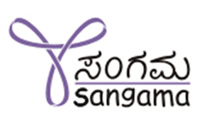 Sangama is a human rights organisation founded in 1999 that works primarily with sexuality minorities as well as identities typical to the South Asian region: kothis, hijras, jogappas and others who are discriminated against due to their sexual orientation/gender identity) sex workers (male, female, transgender, street, home and brothel based) and People Living with HIV. As part of a larger struggle for equality and justice, Sangama emphasises the concerns of people facing multiple oppressions: sexual preference, gender identity, sex work, HIV status, class, caste and gender.
Sangama is a human rights organisation founded in 1999 that works primarily with sexuality minorities as well as identities typical to the South Asian region: kothis, hijras, jogappas and others who are discriminated against due to their sexual orientation/gender identity) sex workers (male, female, transgender, street, home and brothel based) and People Living with HIV. As part of a larger struggle for equality and justice, Sangama emphasises the concerns of people facing multiple oppressions: sexual preference, gender identity, sex work, HIV status, class, caste and gender.
South India AIDS Action Project (SIAAP), Tamil Nadu
SIAAP is a not-for-profit organisation set up in 1993. It believes that sexuality is a fundamental part of identity and the right to wellbeing includes a right to sexual and reproductive well-being irrespective of gender, sexual orientation and behaviour.
SIAAP is an advocacy organisation which started its intervention through a Public Interest Litigation in Madras High Court seeking the release of nearly 800 female sex workers living with HIV. The landmark judgment set a precedent against detention of People Living with HIV/AIDS. Our first intervention started in the year 1993 with women in sex work in southern states of India. By 2000, SIAAP registered 11 sanghams (collectives) of women in sex work. SIAAP is the Secretariat for the National Network of sex workers.
Srijan Foundation (SRIJAN), Jharkhand
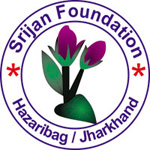 Srijan is Jharkhand based rural development agency, formed by a group of socially committed young professionals. Registered in 2001, the organisation works directly with the community, particularly with women, adolescents and children, who are struggling with poverty, social exclusion and gender injustice. Srijan works with the sex workers’ community for the past seven years, collectivising them and raising awareness about their rights. At present Srijan works in two districts: Ranchi and Gumla, reaching out to around 600 sex workers.
Srijan is Jharkhand based rural development agency, formed by a group of socially committed young professionals. Registered in 2001, the organisation works directly with the community, particularly with women, adolescents and children, who are struggling with poverty, social exclusion and gender injustice. Srijan works with the sex workers’ community for the past seven years, collectivising them and raising awareness about their rights. At present Srijan works in two districts: Ranchi and Gumla, reaching out to around 600 sex workers.
Vikalp, Gujarat
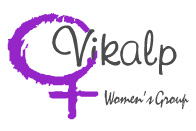 Vikalp (Women’s Group) a registered society was formed by a group of women activists involved in the larger women’s movement. It was formed primarily to address issues of violence against women and legitimise women’s experiences. Since its inception in 1996, Vikalp (Women’s Group) Baroda has worked in the rural and tribal areas of Gujarat. It focuses on women’s human rights, domestic violence, gender, sexuality, and HIV/AIDS.
Vikalp (Women’s Group) a registered society was formed by a group of women activists involved in the larger women’s movement. It was formed primarily to address issues of violence against women and legitimise women’s experiences. Since its inception in 1996, Vikalp (Women’s Group) Baroda has worked in the rural and tribal areas of Gujarat. It focuses on women’s human rights, domestic violence, gender, sexuality, and HIV/AIDS.
Women’s Initiatives (WINS), Andhra Pradesh
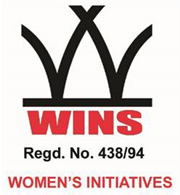 WINS started work in 1994 on gender equality and diverse sexuality. It is committed to addressing and countering the violation of basic rights of marginalised women and children as well as the LGBT community. Community collectives in some districts of Andhra Pradesh and Kerala have been supported to deepen and develop their agency, to advocate for their basic human rights and dignity, and to represent themselves at district, national forums to bring about changes in law. The groups provide access to immediate poverty needs, strengthen ethical resource generation, impart life skills education. WINS brings together progressive movements working with marginalised communities to build strong coalitions. The Coalition against Criminalisation, based on community, gender and sexuality is demanding civil and political rights.
WINS started work in 1994 on gender equality and diverse sexuality. It is committed to addressing and countering the violation of basic rights of marginalised women and children as well as the LGBT community. Community collectives in some districts of Andhra Pradesh and Kerala have been supported to deepen and develop their agency, to advocate for their basic human rights and dignity, and to represent themselves at district, national forums to bring about changes in law. The groups provide access to immediate poverty needs, strengthen ethical resource generation, impart life skills education. WINS brings together progressive movements working with marginalised communities to build strong coalitions. The Coalition against Criminalisation, based on community, gender and sexuality is demanding civil and political rights.

